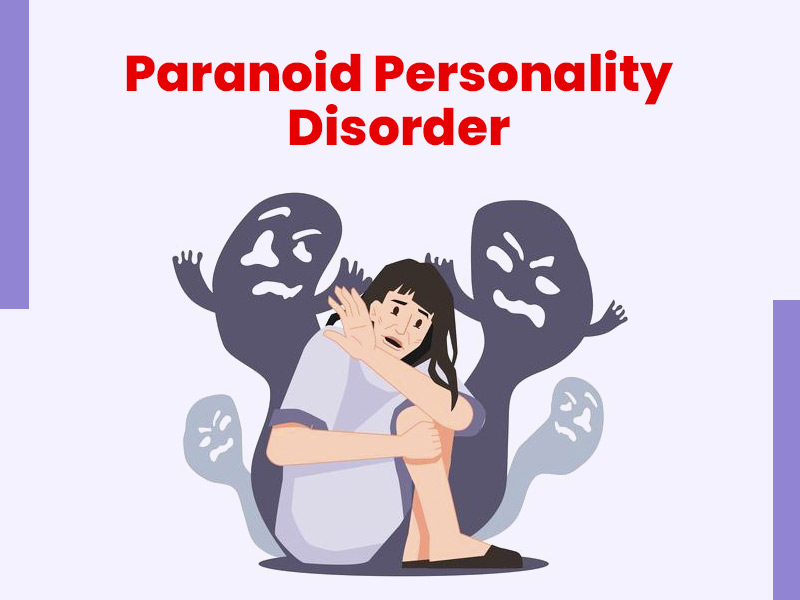Paranoid Personality Disorder (PDD)
Paranoid Personality Disorder (PDD)
Paranoid Personality Disorder (PDD)
A Round of Recreational Therapy
IN THIS ARTICLE
- What Are the Symptoms of Paranoid Personality Disorder?
- What Causes Paranoid Personality Disorder?
- How Is Paranoid Personality Disorder Diagnosed?
- How Is Paranoid Personality Disorder Treated?
- What Complications Are Associated With Paranoid Personality Disorder?
- What Is the Outlook for People With Paranoid Personality Disorder?
- Can Paranoid Personality Disorder Be Prevented?

Paranoid personality disorder (PPD) is one of a group of conditions called “Cluster A” personality disorders which involve odd or eccentric ways of thinking. People with PPD also suffer from paranoia, an unrelenting mistrust and suspicion of others, even when there is no reason to be suspicious.
This disorder usually begins by early adulthood and appears to be more common in men than in women.
What Are the Symptoms of Paranoid Personality Disorder?
People with PPD are always on guard, believing that others are constantly trying to demean, harm, or threaten them. These generally unfounded beliefs, as well as their habits of blame and distrust, might interfere with their ability to form close relationships. People with this disorder:
- Doubt the commitment, loyalty, or trustworthiness of others, believing others are using or deceiving them
- Are reluctant to confide in others or reveal personal information due to a fear that the information will be used against them
- Are unforgiving and hold grudges
- Are hypersensitive and take criticism poorly
- Read hidden meanings in the innocent remarks or casual looks of others
- Perceive attacks on their character that are not apparent to others; they generally react with anger and are quick to retaliate
- Have recurrent suspicions, without reason, that their spouses or lovers are being unfaithful
- Are generally cold and distant in their relationships with others, and might become controlling and jealous
- Cannot see their role in problems or conflicts and believe they are always right
- Have difficulty relaxing
- Are hostile, stubborn, and argumentative
What Causes Paranoid Personality Disorder?
The exact cause of PPD is not known, but it likely involves a combination of biological and psychological factors. The fact that PPD is more common in people who have close relatives with schizophrenia suggests a genetic link between the two disorders. Early childhood experiences, including physical or emotional trauma, are also suspected to play a role in the development of PPD.
How Is Paranoid Personality Disorder Diagnosed?
If physical symptoms are present, the doctor will begin an evaluation by performing a complete medical and psychiatric history and, if indicated, a physical exam. Although there are no laboratory tests to specifically diagnose personality disorders, the doctor might use various diagnostic tests to rule out physical illness as the cause of the symptoms.
If the doctor finds no physical reason for the symptoms, they might refer the person to a psychiatrist or psychologist, health care professionals who are specially trained to diagnose and treat mental illnesses. Psychiatrists and psychologists use specially designed interview and assessment tools to evaluate a person for a personality disorder.
How Is Paranoid Personality Disorder Treated?
People with PPD often do not seek treatment on their own because they do not see themselves as having a problem. When treatment is sought, psychotherapy (a form of counseling) is the treatment of choice for PPD. Treatment likely will focus on increasing general coping skills, as well as on improving social interaction, communication, and self-esteem.
Because trust is an important factor of psychotherapy, treatment is challenging since people with PPD have such distrust of others. As a result, many people with PPD do not follow their treatment plan.
Medication generally is not a major focus of treatment for PPD. However, medications, such as anti-anxiety, antidepressant or antipsychotic drugs, might be prescribed if the person’s symptoms are extreme, or if they also suffer from an associated psychological problem, such as anxiety or depression.
What Complications Are Associated With Paranoid Personality Disorder?
The thinking and behaviors associated with PPD can interfere with a person’s ability to maintain relationships, as well as their ability to function socially and in work situations. In many cases, people with PPD become involved in legal battles, suing people or companies they believe are “out to get them.”
What Is the Outlook for People With Paranoid Personality Disorder?
The outlook for people with PPD varies. It is a chronic disorder, which means it tends to last throughout a person’s life. Although some people can function fairly well with PPD and are able to marry and hold jobs, others are completely disabled by the disorder. Because people with PPD tend to resist treatment, the outcome often is poor.
Can Paranoid Personality Disorder Be Prevented?
Although prevention of PDD might not be possible, treatment can sometimes allow a person who is prone to this condition to learn more productive ways of dealing with situations.



